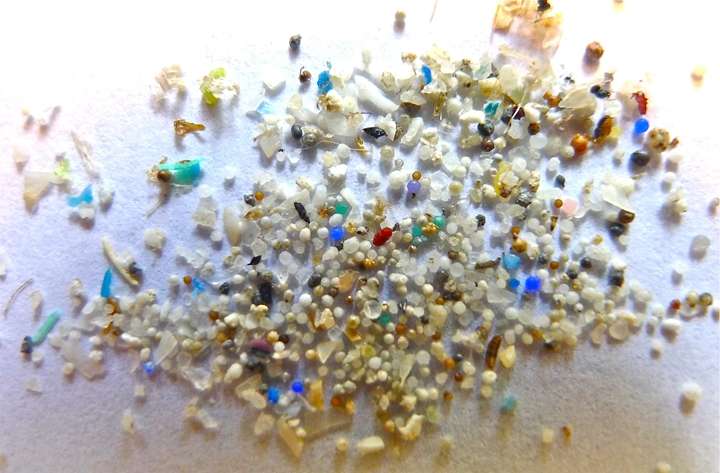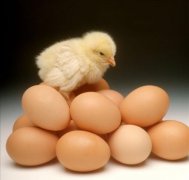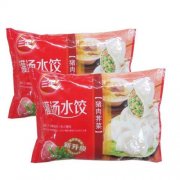Oil degradation: plastic waste flooding? Bioplastics don't use oil and degrade very quickly.
Plastic waste flooding? Bioplastics do not use oil and degrade very quickly. Now, a new study from Tel Aviv University in Israel describes a process for making bioplastic polymers that are derived from algae-eating microorganisms, biodegradable, produce zero-toxic waste, and can be recycled as organic waste.
The discovery, the result of a collaboration between Dr. Alexander Golberg of Tel Aviv University's Department of Environmental and Geosciences and Professor Michael Gozin of Tel Aviv University's School of Chemistry, was published in the journal Bioresources Technology.

"Plastics take hundreds of years to decay, so bottles, packaging and plastic bags form 'plastic continents' in the ocean, endangering marine life and polluting the marine environment," Dr Gulberg said. Plastic is also a petroleum product. Making plastic is an industrial manufacturing process. The by-product is the release of chemical pollutants."
Plastics currently account for 90 percent of all pollutants in the oceans, according to the United Nations, but there are few environmentally friendly alternatives. "Plastics take hundreds of years to decay, so bottles, packaging and plastic bags form 'plastic continents' in the ocean, endangering marine life and polluting the marine environment," Dr Gulberg said. Plastic is also a petroleum product. Making plastic is an industrial manufacturing process. The by-product is the release of chemical pollutants."
One solution to the plastic flood is bioplastics, which use no petroleum and degrade very quickly. But bioplastics also have an environmental cost. Growing these plants or bacteria requires fertile soil and fresh water, which Israel does not have.
Dr. Gulberg says our latest technology is to make "plastic" from marine microbes that can be recycled completely into organic waste. The researchers use algae to feed on microbes to produce a bioplastic polymer called polyhydroxyalkanoates (PHA), which are made from multicellular algae grown in the ocean. These algae are eaten by single-celled microbes, which also grow in salt water, producing a polymer used to make bioplastics.
There are already factories producing the bioplastics commercially, but their factories require agricultural land and fresh water. We propose that this process will enable freshwater deficit countries such as Israel, China and India to switch from petroleum-based plastics to biodegradable plastics.
According to dr gulberg, this latest research could revolutionise efforts to clean the world's oceans without affecting arable land or using fresh water. Fossil derived plastics are one of the most polluting factors in the oceans, and we have demonstrated that it is possible to produce bioplastics entirely from marine resources, a process that is friendly to both the environment and people.
"We are conducting fundamental research to find the bacteria and algae that are best suited to produce biopolymer polymers with different properties," he concluded.
- Prev

Egg residue: egg fenbuprofen residue exceeds the standard by up to 6 times, and egg drug residue penalty standard
We are now very concerned about the issue of food safety. Do you know why there is food safety today? do you know? Fenpril residues in eggs sampled from Shunhong Farm in Changhua County exceeded the standard by physical examination, and the detected amounts were 0.03, 0.04 and 0.04 respectively.
- Next

Classical swine fever was detected in Sanquan dumplings: is Sanquan frozen dumplings safe? African classical swine fever detected in Sanquan dumplings
Sanquan dumplings can be said to be a well-known dumpling brand. At a time when the incidence of classical swine fever is high, Sanquan dumplings have also been tested positive for African classical swine fever virus nucleic acid. What is the matter and what is the cause of this? It is reported that Sanquan Food Company (
Related
- A one-day flower show brings 130 million yuan in orders! Nanhai, this Phalaenopsis exhibition is amazing
- What do the flower language and meaning of Lutheran tree mean? Precautions for planting Lutheran tree
- Encounter Chaoshan Kongfu tea, not without this cup of Phoenix single clump
- The durian market in Vietnam and Thailand is flooded. The price of imported durian has plummeted by 30-40% in a month.
- Shanghai solved the problem of local vegetable supply by planting 80,000 mu of green leafy vegetables.
- Wageningen University has become the best agricultural university in the world for the seventh time in a row.
- The strongest export season of South African grapes is full of challenges, with exports to Russia falling sharply by 21%.
- Sri Lanka is on the verge of bankruptcy, "Tea for debt" Organic Agriculture Revolution aggravates the Food crisis?
- Turning waste into earthworm manure and worm manure into organic fertilizer-A new choice for auxiliary farming
- Organic rice growers shoulder the responsibility of nurturing agricultural talents! Yinchuan Sustainable Farm with Organic Life Camp

